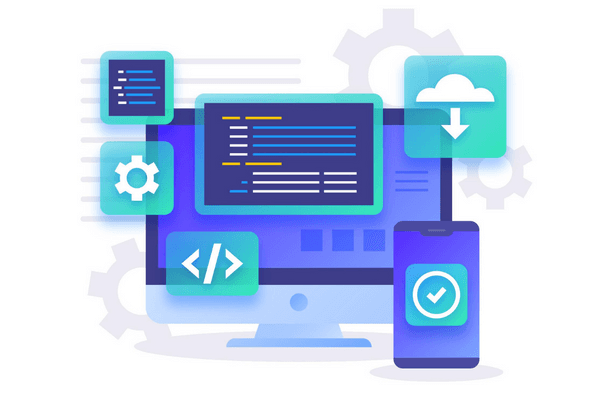
In today's digital age, having a website for your business or personal brand is essential. But what goes into website development, and what are the best tools and platforms to use? In this blog post, we'll cover everything you need to know about website development, including CMS, web development platforms, frameworks, and more.
Website development is the process of creating and maintaining a website, from designing the layout to coding and programming it. It involves a range of skills and techniques, including web design, web programming, and database management. Web developers use programming languages like HTML, CSS, and JavaScript to build websites that are visually appealing, functional, and user-friendly.
CMS stands for Content Management System. It is a software application that allows users to create, manage, and publish digital content on a website. CMSs provide a user-friendly interface that makes it easy for non-technical users to manage website content without having to know how to code. Some popular CMSs include WordPress, Drupal, and Joomla.
Some popular CMS options include WordPress, Drupal, Joomla, Magento, Shopify, and Squarespace. WordPress is one of the most popular CMS platforms, powering over 40% of websites globally. It offers a range of customization options and a vast library of plugins and themes. Drupal is a highly customizable and secure CMS, popular with enterprise-level organizations.
Joomla offers a balance between ease of use and flexibility, making it a popular choice for small to medium-sized businesses. Magento is a popular CMS for e-commerce websites, with a strong focus on online stores. Shopify is another popular e-commerce CMS platform, with an easy-to-use interface and a range of e-commerce features. Squarespace offers a user-friendly interface and customizable templates, making it an excellent option for small businesses and personal websites.

The best platform for website development depends on your specific needs and goals. There are several popular website development platforms, including WordPress, Shopify, Squarespace, Wix, and Magento. Each platform has its own strengths and weaknesses, so it's important to do your research and choose the one that best fits your needs.
Here's a list of some of the most popular web development platforms:
WordPress is by far the most popular web development platform, with over 40% of all websites on the internet using it. Shopify is another popular platform, particularly for e-commerce sites.
Web development is important because it allows businesses and individuals to create a digital presence and reach a wider audience. A well-designed and functional website can help businesses generate leads, increase sales, and build brand awareness. It also allows individuals to showcase their skills and work to potential clients and employers.
Yes, web development requires coding. However, there are website development platforms and tools that require little to no coding knowledge, such as Wix and Squarespace. For more complex websites and applications, however, coding skills are necessary.
Custom website development involves creating a website from scratch, rather than using a pre-built template or platform. This allows for greater flexibility and customization, but also requires more time and resources.
Custom website development has several benefits, including:
Some popular backend frameworks for web development include:
Some popular frontend frameworks for web development include:
These frameworks are all highly regarded by web developers and offer various benefits depending on the needs of the project.
In conclusion, website development involves creating and maintaining a website through web design, web programming, and database management. Content Management Systems (CMS) like WordPress, Drupal, and Joomla offer a user-friendly interface that makes it easy for non-technical users to manage website content. The best CMS and platform for website development depend on specific needs and goals, with popular options like WordPress, Shopify, and Squarespace.
Custom website development allows for greater flexibility and customization, but requires more time and resources. Backend frameworks like Ruby on Rails and Express.js and frontend frameworks like React, Angular, and Vue.js offer various benefits depending on the needs of the project. Ultimately, website development is important for businesses and individuals to create a digital presence, reach a wider audience, and generate leads, increase sales, and build brand awareness.